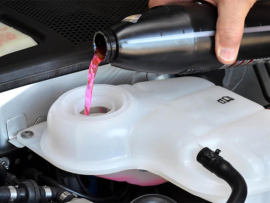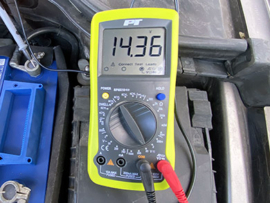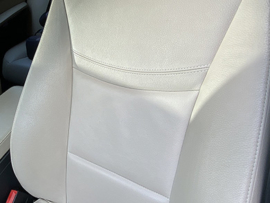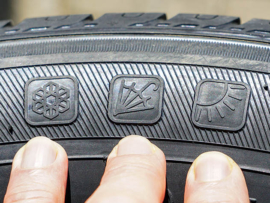This diagnostic trouble code signals an issue with the camshaft position sensor of the engine. Essentially, the engine control module (ECM) has detected an irregularity or incorrect signal coming from the camshaft position sensor “A” in the second bank of the engine. This sensor plays a pivotal role in monitoring the position of the camshaft and feeding this data to the ECM. Based on this information, the ECM orchestrates the timing for fuel injection and ignition to ensure optimal engine performance.
More about the code
When the code P0345 is activated, it typically means that the camshaft’s timing might be off, which can lead to a slew of issues. Drivers might notice rough idling, poor acceleration, reduced fuel efficiency, and even engine stalling. Additionally, this code suggests that the camshaft position sensor, its circuit, or other related components could be malfunctioning.
Causes of OBD-II Code P0345
P0345 can be traced back to a mix of electrical and mechanical issues, all revolving around the camshaft position sensor’s operation and the correct positioning of the camshaft in bank 2. Here are the typical contributors to the code occurrence:
- Faulty Camshaft Position Sensor. The most straightforward reason could be that the sensor itself is malfunctioning and needs replacement.
- Wiring and Connector Issues. Damaged wiring, corroded connectors, or poor connections related to the camshaft position sensor can lead to erratic signals or even signal loss.
- Engine Timing Problems. If the timing chain or belt has issues, it can disrupt the camshaft’s position, potentially causing the sensor to produce unexpected readings.
- Metallic Debris. Metal fragments or particles in the engine oil might attach to the camshaft position sensor, distorting its readings.
- Oil Flow Issues. If the oil passages leading to the camshaft phasers (in vehicles with variable valve timing) become clogged or there’s poor oil flow, it can impact camshaft timing and sensor readings.
- Faulty Engine Control Module (ECM). In rare instances, a malfunctioning ECM could misinterpret the sensor’s signals, triggering the P0345 code.
Related DTCs to P0345
P0300, P0335, P0336, P0340, P0341, P0342, P0343, P0344, P0346 – P0349, P0725.
FAQs
How much does it cost to fix the code P0345?
The total average cost to fix the P0345 code can vary widely based on the exact nature of the problem, labor rates in your area, the make and model of the vehicle, and where you choose to get the repair done. Considering just the sensor replacement, you might expect to pay anywhere from $100 to $400. But always keep in mind that prices can be significantly higher if other issues need to be addressed.
Can I continue driving with the P0345 code?
Driving with a P0345 code isn’t recommended for several reasons. While only the general engine performance, fuel consumption, and emission levels may be impacted, either there is a risk of stalling and a big potential for further engine damage.
Is a camshaft sensor easy to replace?
Replacing a camshaft sensor is typically a straightforward task for many vehicles. Its relative simplicity is due to the sensor’s external location on the engine, which often means it’s readily accessible. You generally just need to disconnect the electrical connector, remove a bolt or two, and then replace the sensor. However, ease of replacement can vary based on the vehicle’s make and model. While some cars have camshaft sensors that are easy to reach, others might be located in places that require the removal of additional components or are obstructed, making the process slightly more time-consuming. If you’re considering doing the replacement yourself, it’s beneficial to consult a repair manual for your specific vehicle or if you’re uncertain, or have any doubts about how to do so – it’s worth addressing these operations to an experienced mechanic or trusted garage.
How long should a camshaft sensor last?
A camshaft sensor is designed to last for a long time, often mirroring the lifespan of the vehicle itself. Under normal conditions, a camshaft sensor can easily last between 75,000 to 100,000 miles, if not longer. However, the actual longevity of the sensor can vary based on several factors, including the quality of the sensor itself, the driving conditions it’s exposed to, and how well the vehicle is maintained. While these sensors are built to be durable, external factors like oil leaks, extreme temperatures, or contaminants can affect their lifespan.
We do an efforts to find, research and recommend the best products. So, we may receive commissions from purchases that you make after following the links in our product reviews.








Leave A Comment